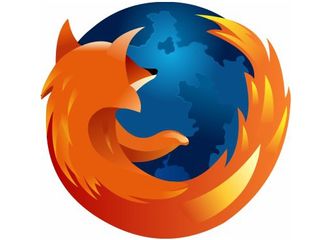Firefox OS Won't Arrive in USA Until 2014
Don't expect local Firefox OS devices until next year.

During the D: Dive Into Mobile conference on Monday, Mozilla CEO Gary Kovacs said that Firefox OS will begin rolling out in June across five countries: Venezuela, Poland, Brazil, Portugal and Spain. By the end of the year, the new mobile platform will be in an additional eleven countries, none of which will be the United States.
Unfortunately, North Americans looking to purchase a local smartphone packed with Mozilla's new Firefox OS won't see them on the market until 2014. Why? Because unlike the rest of the world, Silicon Valley sees everything through high-end devices, he said.
"In the short term, we’re launching in emerging markets where Firefox is particularly strong," he said. "It didn’t make sense for us to launch a version-one device around the world."
The comments were made during an on-stage Q&A with hosts Ina Fried and Walt Mossberg. During the session, Ina asked a very important question: why would someone choose a Firefox OS device over a low-end Android phone? Kovacs' response wasn't exactly direct, and came in the form of the rollout plan.
"In the early days -- by the way, we're talking about a version 1.0 product -- our whole mission is to stimulate the ecosystem, just like we did with the desktop browser," he said. "Once the standards were set, connected users exploded. In the short term, it'll be brand appeal -- we're launching in areas where Firefox has good brand recognition."
Thus, by the time Mozilla is ready to introduce Firefox OS to the North American market, the base ecosystem will be well established and maybe even competitive with Google's Android and Apple's iOS. The biggest advantage Mozilla's platform will have over the competition will be its heavy support for HTML5 apps which will communicate directly to hardware via JavaScript. HTML5 on Android and iOS is supported via Chrome and Safari.
As reported last week, Kovacs is stepping down as Mozilla's CEO later this year after filling the position for less than three. Mozilla will begin searching for a replacement immediately, and Kovacs said he would remain on Mozilla's board once he steps down as CEO.
Stay on the Cutting Edge
Join the experts who read Tom's Hardware for the inside track on enthusiast PC tech news — and have for over 25 years. We'll send breaking news and in-depth reviews of CPUs, GPUs, AI, maker hardware and more straight to your inbox.
"The project today is led by experienced teams, set on a strong foundation financially and operationally, and with a clear path to the future," he said. "It is my confidence in this team that makes this the right time for me to move on to the next phase of my personal journey. I will stay on as an active member of Mozilla’s board of directors — so I am staying within the family to help as much as I can."
-
chesterman Well... that's how we (brazilians) feel when google launches there phones here one year after the U.S. launch =(Reply -
nhat11 Reply10672690 said:Well... that's how we (brazilians) feel when google launches there phones here one year after the U.S. launch =(
Unfortunately no one cares about firefox OS in the states until it becomes more popular... -
Marcus52 If I haven't spent my money on a Windows phone by then (In the U.S. here), I will certainly be interested in a Firefox OS device. Maybe Ubuntu? Depends a lot on the hardware, as Kovacs suggests.Reply -
dalethepcman Reply10672690 said:Well... that's how we (brazilians) feel when google launches there phones here one year after the U.S. launch =(
I am not sure where in the article "Feelings" come into play, or if you are replying to some ghost post, but the difference is Google is a US company.
If Google released a smartphone in Brazil first, it would seem strange. -
I am personally more interested in Ubuntu that this, although if its a good OS then it will definitely put pressure on the bigger mobile operating systems.Reply
-
g-unit1111 Hey most of us on wireless contracts should be able to get new phones by then, what's the fuss about? :lol:Reply
Most Popular

